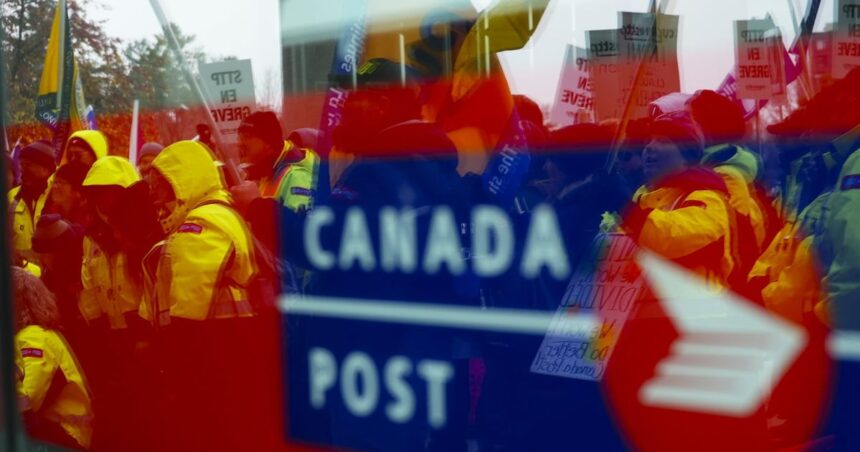As the clock struck midnight yesterday, Canada Post workers across the nation initiated a nationwide overtime ban, marking a significant escalation in the ongoing labor dispute between the Crown corporation and its 55,000 employees. The Canadian Union of Postal Workers (CUPW) made the decisive move after negotiations reached an impasse on key issues including wages, working conditions, and job security.
“This overtime ban represents our members’ frustration with a negotiation process that has failed to address fundamental workplace concerns,” said Elena Ramirez, CUPW National President, speaking from the union’s headquarters in Ottawa. “Our workers deliver for Canadians every day in increasingly difficult conditions, yet the corporation refuses to deliver a fair contract.”
The ban prohibits postal workers from accepting any overtime shifts, a practice that Canada Post has heavily relied upon to manage delivery volumes, particularly during peak periods. According to internal documents obtained by CO24, overtime hours accounted for approximately 15% of Canada Post’s total labor hours in 2024, highlighting the potential impact of this collective action.
Industry analysts suggest the timing is strategic, coming just weeks before the summer holiday season when parcel volumes typically increase by 20-30%. The corporation has already warned customers to expect delivery delays of 2-3 business days for standard mail and up to 5 days for parcels to remote locations.
Canada Post spokesperson Martin Chen expressed disappointment in the union’s decision. “We’ve put forward a comprehensive offer that includes a 9.5% wage increase over four years, enhanced benefits, and new workplace safety measures,” Chen stated. “The overtime ban will unfortunately impact Canadians who depend on our services, including small businesses and vulnerable populations.”
However, CUPW leadership counters that the offer falls short of addressing the changing nature of postal work. “E-commerce has fundamentally transformed the job, with carriers delivering three times the parcels compared to a decade ago,” explained CUPW chief negotiator Sanjay Patel. “Yet staffing levels have remained stagnant, forcing unsustainable overtime just to complete regular routes.”
The dispute has significant political implications as well. Federal Labour Minister Anita Bains has called for both parties to return to the bargaining table, emphasizing the essential nature of postal services. “The government respects the collective bargaining process but urges both sides to find common ground given the importance of mail delivery to our economy and social fabric,” Minister Bains said in a statement released this morning.
The overtime ban represents a calculated middle ground between continuing normal operations and a full strike. Under current labor laws, postal workers must provide 72-hour notice before initiating any complete work stoppage, a step the union has not yet taken.
For Canadian businesses, particularly small e-commerce operations, the timing couldn’t be worse. “We’re heading into one of our busiest seasons, and delivery delays could cost us thousands in lost sales,” said Jordan Lee, owner of Toronto-based Maple Craft Collective, which ships handmade goods nationwide. “Many of us are already exploring alternative delivery options, but the costs are significantly higher.”
The economic impact could be substantial if the dispute continues. A 2023 study by the Canadian Federation of Independent Business estimated that prolonged postal disruptions cost small businesses an average of $3,000 per week in lost sales and alternative shipping arrangements.
As Canadians adjust to potential mail delays, the fundamental question remains: in an era of digital communication and private courier competition, how will this labor dispute reshape the future of our national postal service? With both sides firmly entrenched in their positions, the answer may not arrive as quickly as we’d hope.










